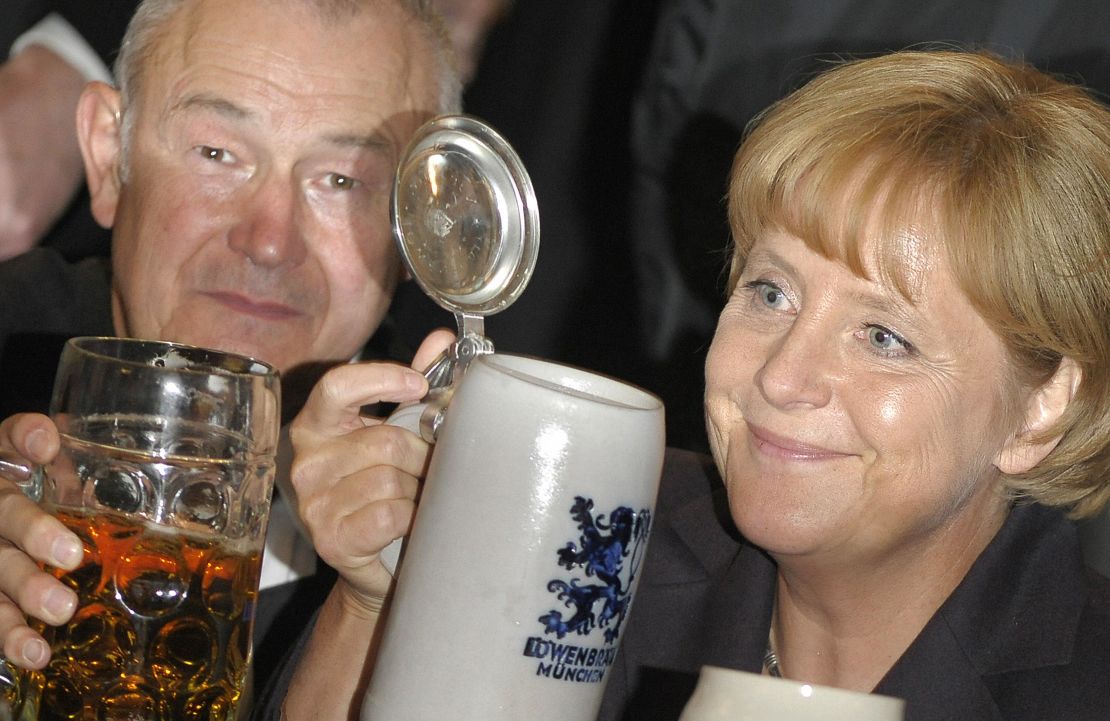Editor’s Note: Rina Soloveitchik is a Berlin-based freelance journalist and writer. She has covered politics and society in Europe and beyond for a range of German and English-speaking publications. The opinions expressed in this commentary are her own.
Munich, the capital of the southern German state of Bavaria, has been stocking up on beer and sausages as it prepares for Oktoberfest: an annual festival of traditional German food, dancing, beer and clothing.
Despite its political neutrality and impression of inconsequential revelry, in recent decades, the festival has become a stage on which politicians can show off their common touch.
Parading in dirndls, chewing pretzels and singing folk songs, these political elites will celebrate a “Germanness” so seemingly playful that it is acceptable in a country that, since the Second World War, has shied away from patriotism.
And this weekend, the images will seem more timely than ever. The ruling conservative party in Bavaria looks likely to lose thousands of votes in the state election next month to the far-right, populist Alternative for Germany (AfD), which campaigns against immigration, Islam and multiculturalism.
It also calls on ethnic Germans to have more children to prevent the eradication of the German people. “The preservation of one’s own national people is a priority in politics and for every government,” the party said in its manifesto for last year’s federal election. Roughly one in eight Germans voted for the AfD in that election, many of them angry about the arrival of a million refugees and migrants in 2015.
Polls predict that the Christian Social Union – a conservative party that has mostly ruled Bavaria since the 1940s and is moving rapidly to the right on immigration in a bid to head off the AfD – might lose its absolute majority.
But using Oktoberfest for political advantage is nothing new.

The festival has a long and unfortunate history of being used in this way. It first took place in 1810, following the wedding of Crown Prince Ludwig and Therese of Saxony-Hildburghausen. It was seen by some as an attempt by the nobility to win favor among normal Germans.
Then, in the 1930s, the Nazis renamed it the “Great German folk festival,” a celebration of Aryan identity.
After the war, the festival became a politics-free space. Today, politicians of all ideological backgrounds make public appearances.
From Angela Merkel to rebel left-wing politicians such as Claudia Roth, who recently paraded her dirndl there, mainstream politicians have their pictures taken holding enormous glasses of beer, or steins.
It is remarkable that all these politicians have long felt comfortable promoting a “festival that emphasizes its German origin with strength and power in every aspect,” as the official website claims.
But even this idea of Germanness lacks a certain authenticity. The kinds of dirndls and lederhosen worn at the festival have little to do with German history. Dirndels and lederhosen were not even worn in Bavaria when the festival first took place.
And it could very well be the case that this gimicky, artificial environment – complete with fancy dress and beer – provides the perfect cover for a politician to roar German songs without looking nationalist.
And it’s this roaring that might soothe some German voters that long for a uniform homeland – without otherness.
And while German politics is currently divisive and the atmosphere in Bavaria is febrile, it’s hard to see this sentiment winning a majority for any party. But as more or the German mainstream apes the policies of far-right nationalists simply to stop their votes from bleeding away, it’s worth asking the question: where could this end?





